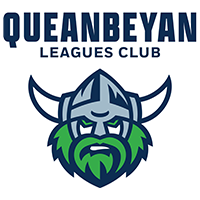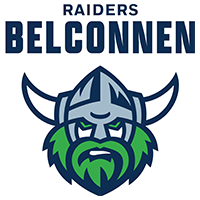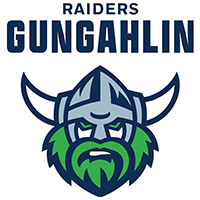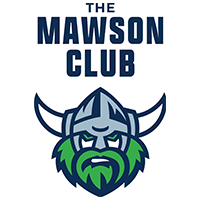Being on the injured list can be a lonely and challenging place at the best of times, but for Raiders forward Corey Horsburgh it’s been particularly so as he strives to recover from a long-term foot injury.
Raiders on the club’s injury list remain inside the NRL bubble but train separately from the main squad, which provides challenges both physically and mentally for players.
With current restrictions in place for NRL players and staff, injury can become an even lonelier place, with the usual support mechanisms of family and friends unavailable as people do their best to remain connected in a global pandemic.
For Horsburgh, it is about remaining focused, refreshed and ready to get himself in the best possible position to play a part on the field again in 2020.
“It’s a bit lonely at times but that’s the sacrifice we make to keep the competition going,” Horsburgh said.
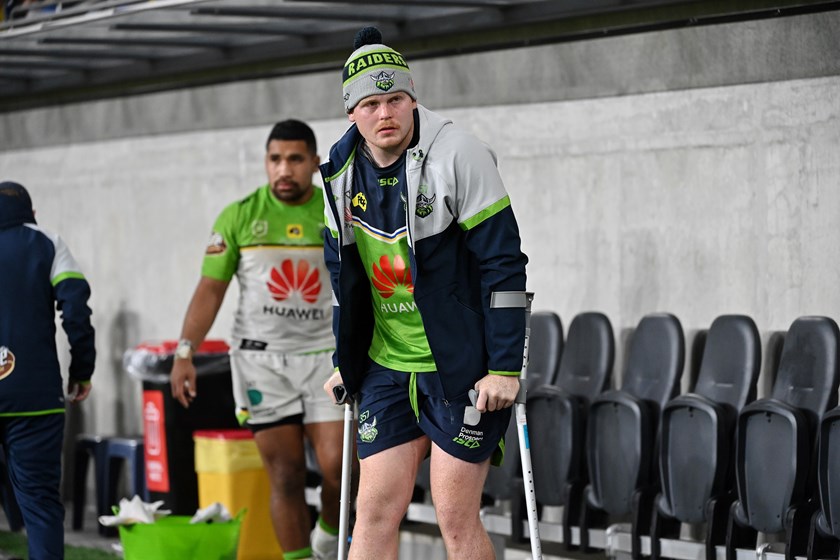
There’s no doubt that 2020 is the most challenging year in recent history.
Even for those with no history of mental illness are finding it difficult, with research from the Black Dog Institute showing that 75% of people are reporting that their mental health has worsened since the outbreak of COVID-19.
The Raiders, in conjunction with their Major Sponsor Huawei will do their bit to promote Mental Health awareness this weekend, when they wear a specially designed jersey to help support Mental Health and the Black Dog Institute.
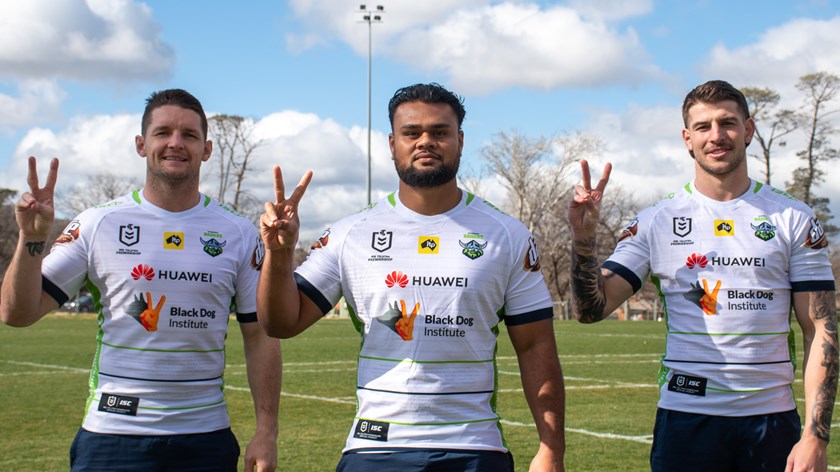
Although Horsburgh has no history of mental illness, being away from family, friends and the main playing group has provided unique challenges.
“You’ve got to come to training, train with three people, you can’t train with the team and then you go home and chill out by yourself,” Horsburgh said. “It’s kind of weird, you just say hello when they are going on the field or when you see them in the morning but you're gone by the time they get off the field. You are out of the circle.
“It was a bit hard the first couple of weeks going to the games and watching the boys go to battle and I can’t do anything to help them really. That kind of got me at the start and I’ve come to terms with it now and I’ve got a good opportunity to come back a bit stronger and a bit better.”
With his parents living in Queensland and unable to travel to every Raiders match like they regularly do, Corey did manage to see them for the first time since the beginning of the pandemic when the Raiders played the Cowboys in Townsville.
His parents made the 18-hour drive from their home in Southern Queensland even though Corey initially tried to talk them out of it due to the fact he wouldn’t be able to see them properly.
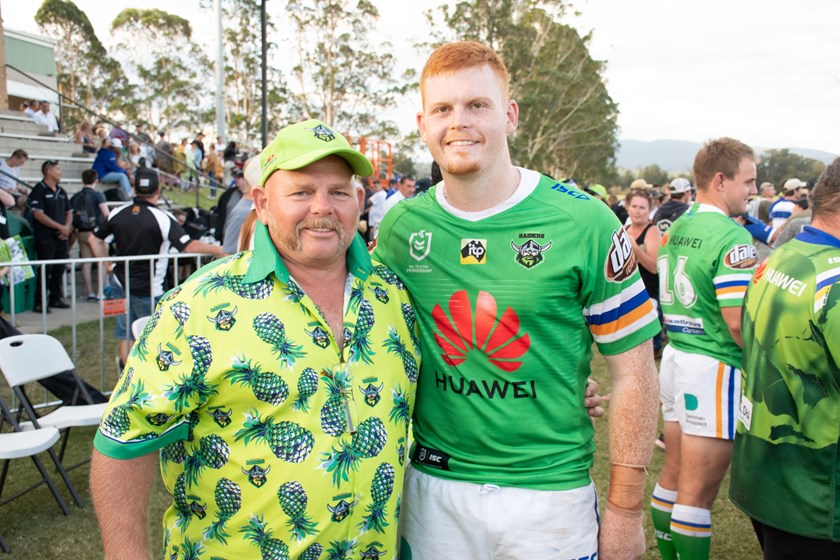
“It was a bit weird. I couldn’t go near them and give them a hug or a kiss to say hello,” Horsburgh said. “I just had to stand back and give them a wave but that’s the kind of life we’re living at the moment.
“It was good to see them all happy and healthy though.”
His older sister Amy, with who lives with Corey, has been an enormous help as he’s been away from the rest of the family and struggling to walk.
“Amy has been a big help because I couldn’t walk for a few weeks,” Horsburgh said. “She’s been doing all the little things for me that you think are easy, she’s been a massive help.
“I probably don’t say thank you enough, but she knows.”
Although Horsburgh won’t have the chance to wear this week’s charity jersey, he sees the importance of the campaign in today’s climate.
Raiders to auction off Match worn Jerseys for Black Dog Institute
“That’s the big topic, raising awareness,” Horsburgh said. “It’s a great start because - especially men - they don’t like to talk about their feelings and their problems. Raising awareness could help someone, so it’s a great cause.”
“I do know that people like to hide their stuff but I’m not really the person who hides from how I feel but a lot of people would hide how they feel and probably struggle.
“I’ve struggled with overthinking stuff at times, which is something I’m trying to work on at the moment.
“Before a game, I would go ‘Am I good enough?’, like negative thoughts. So that’s what I’m really trying to work on, getting those negative thoughts out of my head and focusing on the positive which has actually really helped me so far.”
Knowing that each person has their own unique challenges, Horsburgh believes that the best thing each person can do is look out for those close to them even if you aren’t able to see them regularly due to the current circumstances.
“I do recommend that whatever you are interested in or whatever your mates want to do, get involved with it because you never know how much it could help someone,” Horsburgh said. “The more you get around them and have a chat to them, they’ll slowly start opening up to you and you could get to the source of the problem.
“When people are able to release their emotions, that’s when they start getting better.”
Although Corey has been physically removed from most people in his close support network, he has found that playing Call of Duty online with his mates has allowed him to remain connected while in isolation.
“I would actually say it’s been a big help the PlayStation,” Horsburgh said. “It’s a bit different now, I’d rather go to the pub but at least we can still talk to each other and we’ve adapted.”
Joining him regularly on Call of Duty is Michael Oldfield, Elliott Whitehead, Jordan Rapana and Ryan Sutton while other members of the squad also join in on occasions.
Also joining Corey online are friends from his hometown of Caboolture who he hasn’t been able to see and some of whom have had battles with mental illness.
“I’ve had a few mates that have had depression and went into their own world for a little bit but they luckily came out the other side. I’m still really close with them today,” Horsburgh said. “It’s unfortunate they live back at home so I couldn’t really help them but I was just chatting to them on the phone and while playing the PlayStation and that’s how I keep in touch with a lot of my friends.”
With the end of the regular season in sight, Horsburgh’s is strongly focused on his slim chance of returning to the field at some point this season.
“It’s a slow one but it’s going really well. I’m going to start using one crutch and start walking next week so I’m excited for that,” Horsburgh said. “Hopefully if all things go right, I’ll be back playing at the end of the year.”
If you or someone close to you needs help regarding mental health, you can contact the following to receive help.
Lifeline: 13 11 14
To learn more about the Black Dog Institute or help fund their medical research into mental health, click here.












